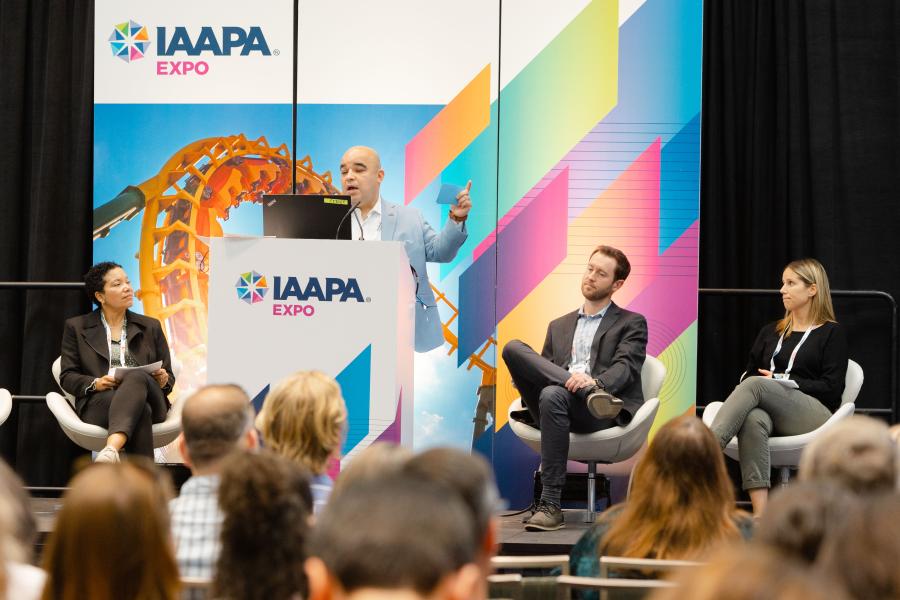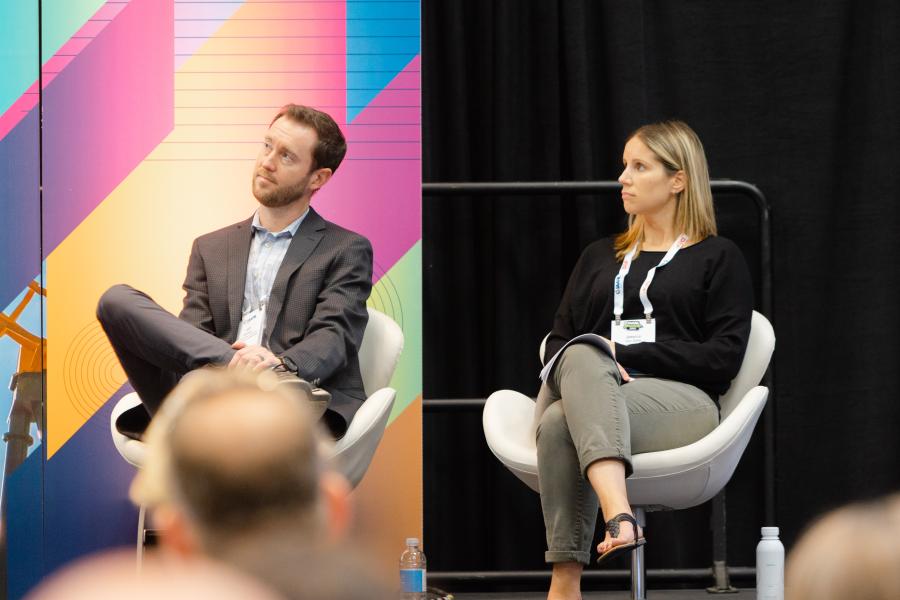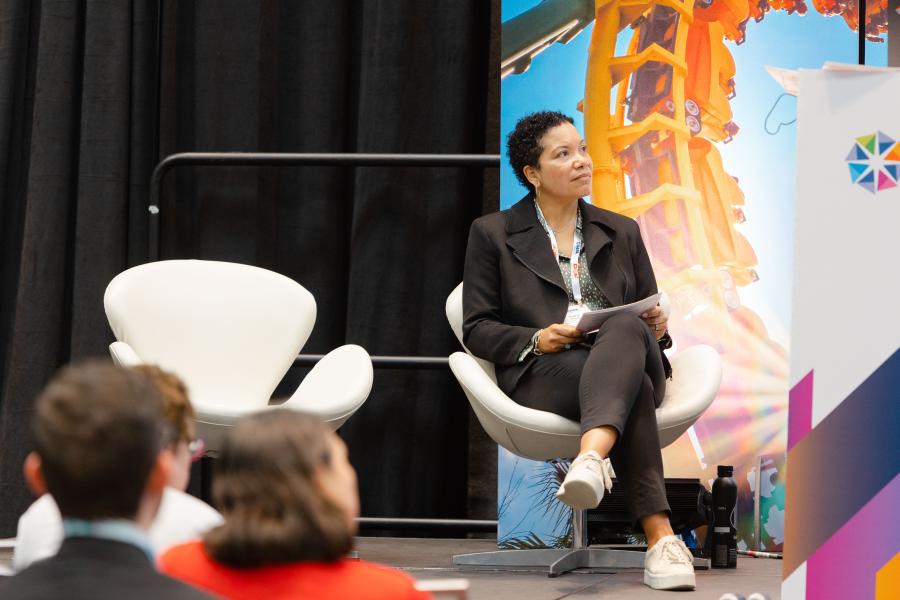When it comes to addressing Environmental and Social Governance (ESG) and Diversity, Equity, Inclusion, and Accessibility (DEIA), the tallest hurdle for many is figuring out where to start. Monday’s EDUSession, “Championing the Visitor Experience: ESG/DEIA Values and Guest Expectations”, was created to provide a blueprint for attractions professionals embarking on their inclusivity journey—as well as offer support to those looking to strengthen their existing initiatives.
Jeff Hornick, vice president of attraction design and development at SeaWorld Parks and Entertainment, began the session by sharing how SeaWorld has made accessible park areas and attraction design a priority. He displayed a series of photos depicting attraction features designed to accommodate guests with physical disabilities, one being the Cobra’s Curse spinning roller coaster at Busch Gardens Tampa Bay.
“We actually have a section of that track that slides over to the side to allow our guests to load by themselves in a little quarantine area, and the rest of the ride can continue while they’re unloading,” shares Hornick.
Sesame Place in Langhorne, Pennsylvania—a SeaWorld-owned park—was also the first theme park in the world to be designated a Certified Autism Center.
Cathy Estelle, director of sales and business partnerships at California Academy of Sciences, contributed a valuable museum perspective. She shared that the Academy offers a series of benefits to ensure that diverse communities feel welcomed and can access the museum’s educational resources. One example is their participation in the Museums for All program, which grants visitors $3 tickets any day of the year if they belong to an Electronic Benefit Transfer (EBT) program, the Special Supplemental Nutrition Program for Women, Infants and Children (WIC), or subscribe to California’s Medicaid Health Care (Medi-Cal), among other support programs.
This inclusivity also translates to the Academy’s advertising efforts, which ensure that people of all backgrounds and experiences feel embraced. “We try to showcase a diverse representation across our advertising, so people of different genders, ethnicities, ages, styles ... This not only applies to our photos and our videos, but also in the voices we use for narration and in our radio,” says Estelle.
Senior Vice President, Operations and Hospitality at Georgia Aquarium, Anthony Rivera, is an enthusiastic proponent of framing ESG and DEIA initiatives as an ongoing process. He spoke about the weight of being situated in a city that carries a historical legacy in the fight for equal rights. “If you know anything about Georgia and Atlanta, it’s the birthplace of Civil Rights, right? So when you think about that, your business is in the area, and that is your community, you need to be intentional in what you do and how you do work to include your community,” he reflects.
Part of that mission means drawing local visitors in, many of whom would not otherwise get the opportunity to see marine life up close in their natural habitats. “We get to expose the world’s ocean and animals to people who probably won’t get the opportunity to travel those three hours to jump in the ocean and see those animals because of many different barriers. And we’re about removing those barriers so people can get access, learn, and help us in our mission—to educate the world about the preservation of our ocean and the animals that live within it.”



